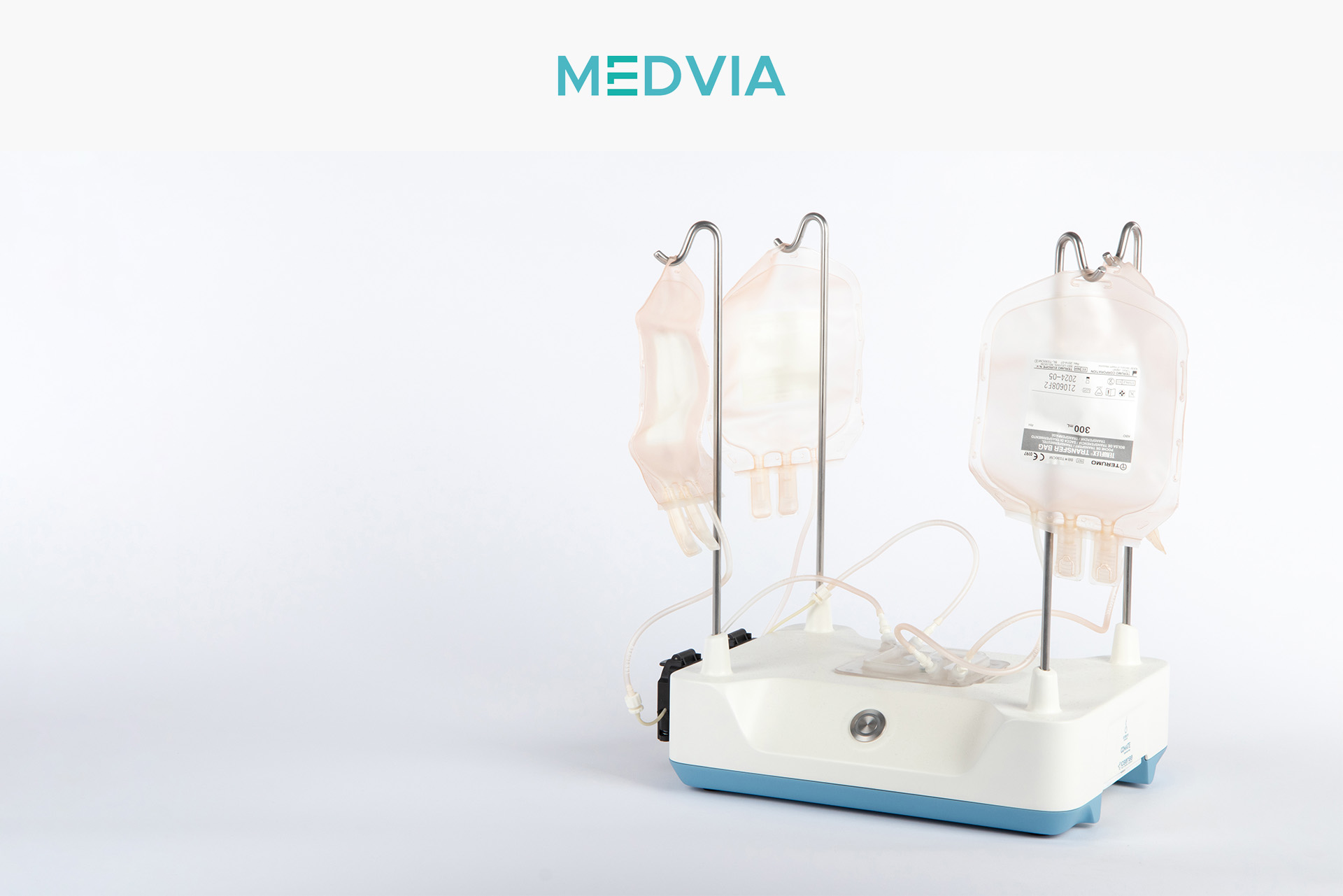Personalized medicines require a personalized solution
Recent healthcare advances are trending towards more personalized medicines and automated diagnostic approaches. In particular, advanced therapy medicinal product (ATMP) manufacturing needs highly monitored, single-use systems, and diagnostic tools require custom cartridges to facilitate the measurement and control of biofluidic processes.
“Companies are increasingly looking for proprietary solutions to fit the specific operations carried out in their bioprocessing facilities, whether it’s diagnostics, cell processing, or advanced therapy production,” says Filip Donvil, Co-Development Architect of Antleron. “By pooling the expertise we have here in Flanders, and building on our combined knowhow and creativity, together we can create this kind of customized approach.”
“Given this biological variability, bioprocesses increasingly need to be custom developed per application for the best chance of success.” – Filip Donvil
The three Biodevice-CRO partners are all based in Leuven, Belgium: Antleron is a biotech company developing custom, scalable bioprocesses based on innovative technologies like digital twins and 3D printing; ICsense consists of ICT experts with experience in tailoring integrated electronics and data processing for specific applications; and Comate is an engineering and design company focusing on high-tech medical devices integrating novel technologies.
“There’s a fast-growing increase in the number of cell and gene therapy modalities being used,” Donvil explains. “But each cell source has different characteristics and responds in different ways to various signals and environments. Given this biological variability, bioprocesses increasingly need to be custom developed per application for the best chance of success.”
Integrated intelligence
The Biodevice-CRO project connects nanotechnology with biological processes via a modular system that integrates a custom combination of a chip, a biofluidic cartridge, and a device. This stands in contrast to current solutions on the market, which tend to use one-size-fits-all cartridges that can only provide limited sample processing. The lack of integrated electronics means that complex connections are needed between the cartridge and the reader for data processing.
Bram De Muer, CEO and founder of ICsense, explains, “Until now, traditional fluidics cartridges for bioprocessing have no real intelligence inside. What really sets our Biodevice-CRO project apart is that we’re creating a smart system with integrated intelligence – where the bioprocess in the cartridge is connected to the outside world via a chip that can transmit data or be programmed in real-time. We’re enabling the interaction between electronics and cells, thus leveraging this for measurements or even cell manipulation.”
“What really sets our Biodevice-CRO project apart is that we’re creating a smart system with integrated intelligence.” – Bram De Muer
To date, the Biodevice-CRO project has focused efforts on an initial test case in electroporation – using electrical impulses to open cell membranes. This proof-of-concept biodevice was unveiled at the Flemish life science ecosystem event Knowledge for Growth earlier this year. However, the possibilities presented by this modular biodevice are virtually endless.
“Our test case was based on creating a biodevice that can control and measure electroporation,” De Muer explains. “It was also a way for us to demonstrate how quickly we can create a customized solution for a specific bioprocessing task. However, this is just our initial focus; the real strength of this innovation lies in its flexibility. Such biodevices can be used to monitor and control a wide range of variables – we can use it to design a device for almost any bioprocessing requirements.”
This quick adaptability will enable life science stakeholders to fast-track development of personalized, scalable solutions, for example creating cell and gene therapies and diagnostics that can be used at point of care, or close to the patient, avoiding time-consuming and expensive shipping to a processing facility.
Reducing the need for cleanrooms and manual labor
Due to the patient-to-patient variability, processing these therapies is often performed manually – especially in research settings – and requires a great deal of hands-on time from expert operators. Biodevice-CRO will automate many of these operations, saving time and money, and better accounting for biological variations between different cells from individual patients.
“We are transforming a number of bioprocessing operations that tend to be performed manually into a fairly automated and closed workflow, reducing the need for manual labor and clean rooms.” – Filip Donvil
The development of personalized therapies must be carried out in tightly controlled environments such as clean rooms, which are both costly and require a lot of space. These spaces are in such high demand that clinical manufacturing organizations often boast about their clean room capacities.
“Rather than continuing this trend of bigger cleanrooms and more demand for people trained in bioprocessing, our biodevice solution will allow people to work smarter, not harder,” says Donvil. “We are transforming a number of bioprocessing operations that tend to be performed manually into a fairly automated and closed workflow, reducing the need for manual labor and clean rooms. Ultimately, we hope to create tools that enable therapy developers to develop one-person factories for each patient.”
A wide range of possibilities
The potential of the biodevice technique is vast: the smart cartridge with chip integration is something brand new in this field. The modular nature of the system allows it to be customized to the individual needs of any interested therapy or diagnostic stakeholder. Innovations offered within the Biodevice-CRO collaboration would aim to provide spillover economic and social benefits in Flanders and beyond, by allowing many personalized medicine stakeholders to accelerate development and access of their innovations to patients in a scalable and sustainable way.
Read this article to learn about the omics solutions of OHMX.bio!
Donvil concludes: “If we are to dream big, I would say each patient could get their own tiny cartridge that makes their specific therapy for them, without needing an army of operators in cleanrooms. We already have smart solutions and automation in so many other industries: it’s time we integrate it in bioprocessing.”


